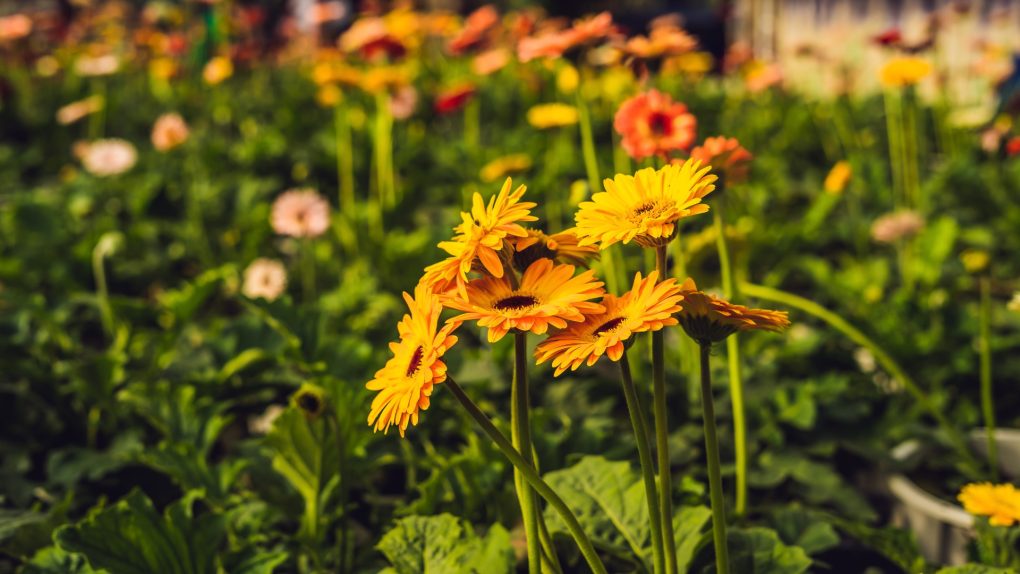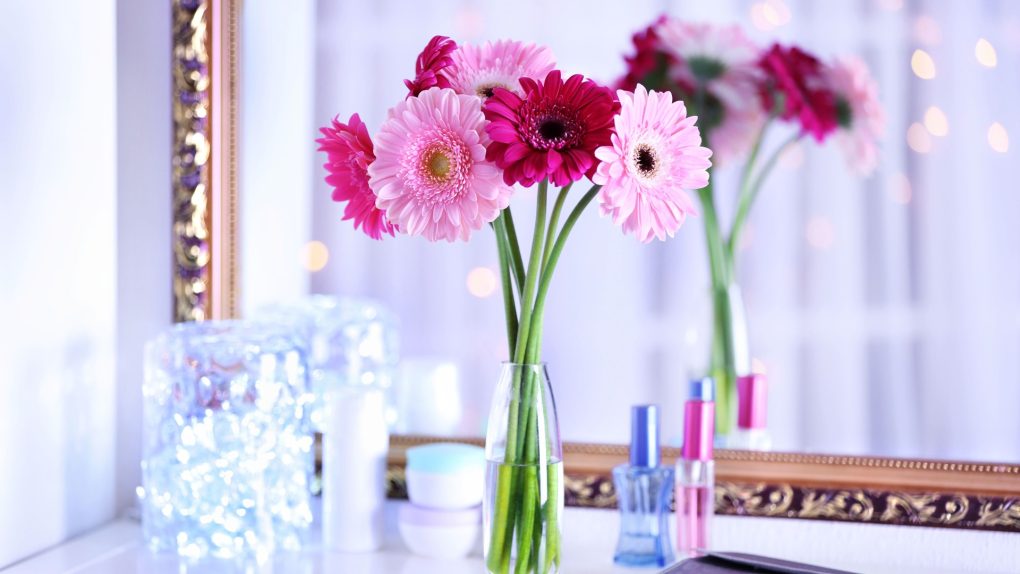Gerbera Daisy Meaning: Symbolism and Significance
Gerbera daisies are a popular flower known for their bright, bold colors and large, showy blooms. But beyond their aesthetic appeal, these flowers also have a rich symbolism and meaning that has been recognized and celebrated for centuries.
According to ancient Egyptian mythology, gerbera daisies represented closeness to nature and devotion to the sun. In other cultures, they have been associated with happiness, positivity, friendship, and warmth. Today, gerbera daisies are commonly used in bouquets and floral arrangements to convey messages of joy, appreciation, and affection.

Whether you want to brighten your home with a cheerful bouquet or send a heartfelt message to a loved one, gerbera daisies are an excellent choice. Understanding their history and meaning allows you to choose the perfect color and arrangement to express your feelings and create a lasting impression.
Table of Contents
Origin and History
Gerbera daisies are perennial flowering plants that are native to South Africa. They were discovered in 1884 by Scotsman Robert Jameson near Barberton, South Africa. The flower’s scientific name, Gerbera jamesonii, is named after its founder. The common name, Gerbera daisy, is named after German naturalist Traugott Gerber.
Gerbera daisies were first introduced to Europe in the late 19th century and quickly became popular due to their bright, vibrant colors and long vase life. Today, Gerbera daisies are grown worldwide and commonly used in floral arrangements, gardens, and as cut flowers.
Gerbera daisies are known by other common names such as Transvaal daisy and Barberton daisy. They are members of the Asteraceae (Compositae) family, which includes other popular flowers such as sunflowers and marigolds.
Symbolism and Meaning
Gerbera daisies are not just beautiful flowers, but they also carry significant symbolism and meaning. In this section, we will explore these lovely flowers’ different colors and cultural significance.
Colors and Their Meanings
The color of a gerbera daisy can convey different meanings and emotions. Here are some of the most common colors and their symbolism:
| Color | Meaning |
| Red | Love, passion, and romance |
| Pink | Admiration, gratitude, and gentleness |
| Yellow | Cheerfulness, joy, and friendship |
| Orange | Warmth, enthusiasm, and excitement |
| White | Purity, innocence, and new beginnings |
| Purple | Royalty, admiration, and dignity |
Cultural Significance
Gerbera daisies hold cultural significance in different parts of the world. In ancient Egypt, they were associated with the sun and closeness to nature. In Celtic mythology, they were believed to lessen sorrows and stresses of everyday life, and in modern times, they are often given as gifts to express joy, positivity, and friendship.
Moreover, various cultures also use gerbera daisies for their medicinal properties. They are believed to have anti-inflammatory and pain-relieving effects, making them useful in treating arthritis and migraines.

Overall, gerbera daisies are more than just pretty flowers, and carry deep symbolism and cultural significance, making them a meaningful gift for any occasion.
Uses and Significance in Different Occasions
Weddings and Special Events
Gerbera daisies are popular for weddings and special events due to their bright and cheerful appearance. They are available in various colors, making them versatile for any theme or color scheme. Gerbera daisies can be used in bridal bouquets, centerpieces, and as a decorative accent throughout the event space. In addition to their aesthetic appeal, gerbera daisies are also known for their symbolism. They represent innocence, purity, and beauty, which makes them a fitting choice for weddings and other special occasions.
Gifting and Decoration
Gerbera daisies are popular for gifting and decoration due to their bright and cheerful appearance. They are often given as gifts to express joy, happiness, and friendship. Gerbera daisies can be used to decorate a home or office and for special occasions such as birthdays, anniversaries, and graduations. In addition to their aesthetic appeal, gerbera daisies also have practical uses. They are known for their air-purifying properties and can help improve a room’s air quality. Gerbera daisies are also used in aromatherapy and are believed to calm the mind and body. Overall, gerbera daisies are versatile and meaningful flowers in various settings. Whether planning a wedding, looking for a gift, or simply wanting to brighten up your space, gerbera daisies are a great choice.

Caring for Gerbera Daisies
Gerbera daisies are relatively easy to care for, making them popular for indoor and outdoor gardens. Proper care will ensure that your gerbera daisies remain healthy and vibrant.
Watering and Soil Requirements
Gerbera daisies require well-draining soil to prevent water from pooling around the roots. Water the plants when the top inch of soil feels dry. Be careful not to overwater, as this can lead to root rot. If the soil is wet, consider adding sand or perlite to improve drainage.
Do not get water on the leaves or flowers, as this can cause fungal infections. Instead, water at the base of the plant and allow the soil to absorb the water.
Sunlight and Temperature
Gerbera daisies require plenty of sunlight to thrive, but they should be protected from direct afternoon sun, which can scorch the leaves and flowers. A location with morning sun and afternoon shade is ideal.
The ideal temperature for gerbera daisies is between 65 and 75 degrees Fahrenheit. They can tolerate higher temperatures but may require more frequent watering.
Pruning and Maintenance
To keep your gerbera daisies looking their best, deadhead spent blooms regularly. It will encourage the plant to produce more flowers. If the plant becomes too bushy, remove some center leaves to allow more light to reach the lower leaves.

Gerbera daisies can be susceptible to fungal diseases, particularly if they are overwatered or if water gets on the leaves and flowers. To prevent fungal diseases, avoid getting water on the leaves and flowers, and ensure that the soil is well-draining.
Inspect your gerbera daisies regularly for signs of pests or diseases, and treat any issues promptly to prevent them from spreading to other plants.
